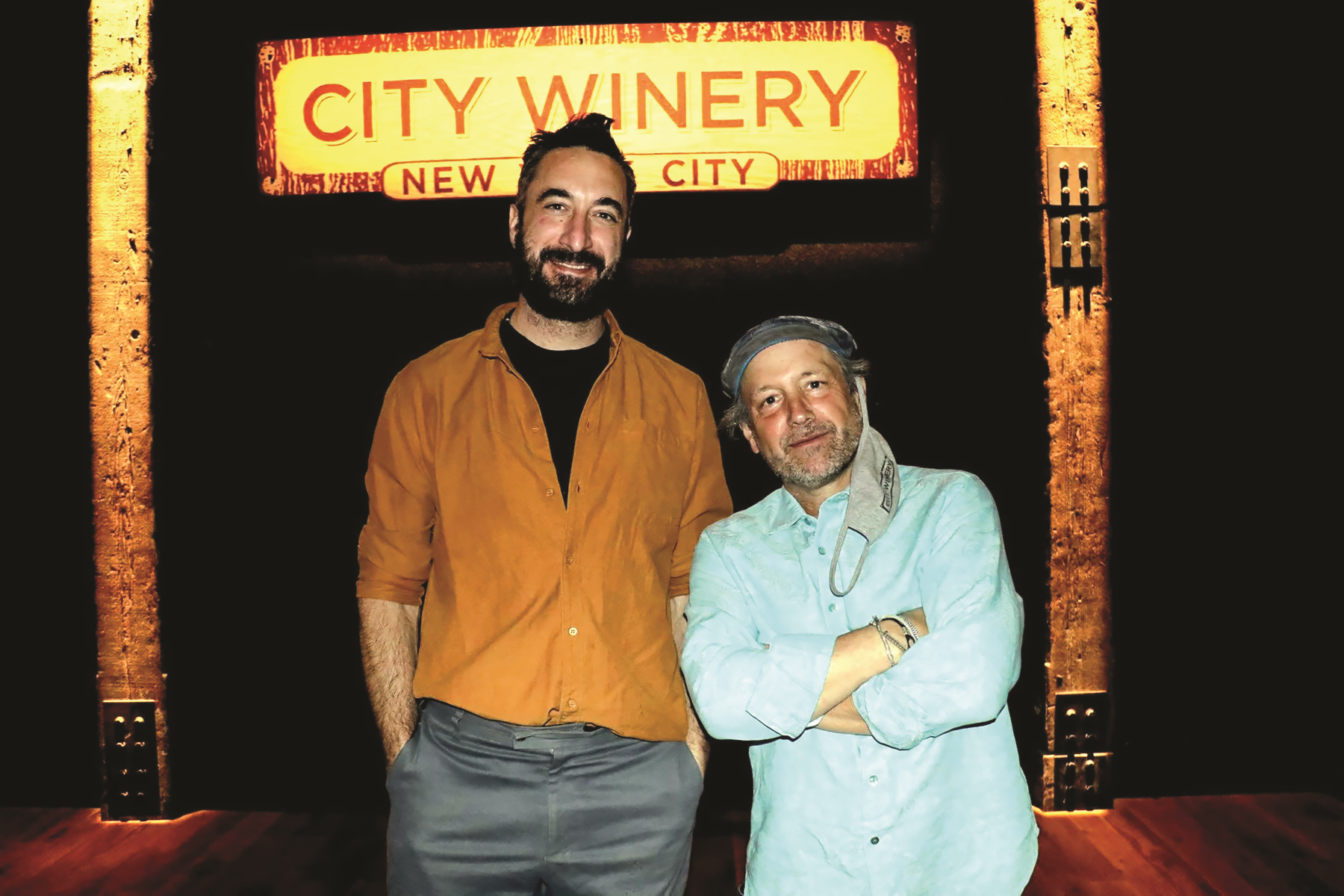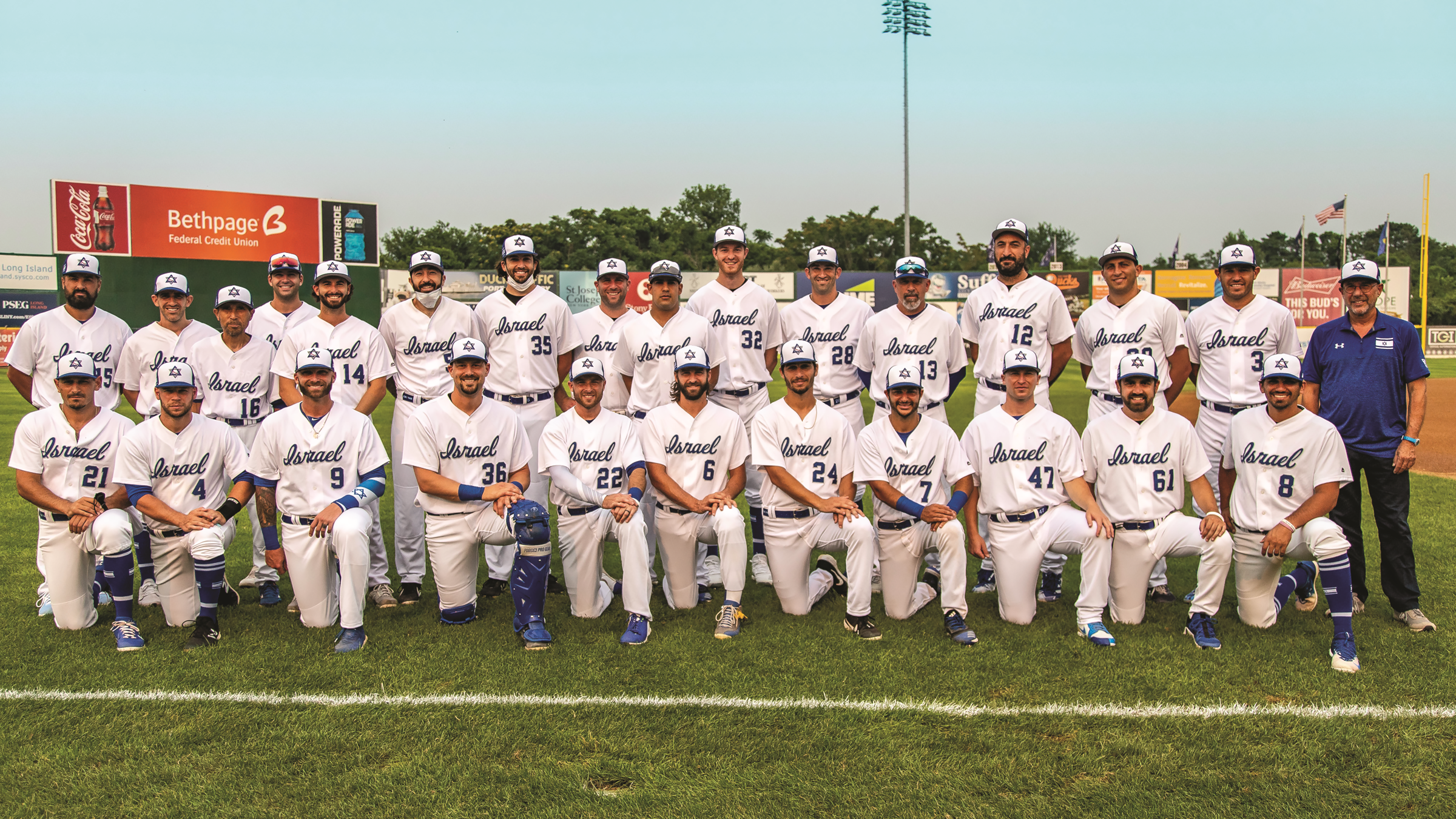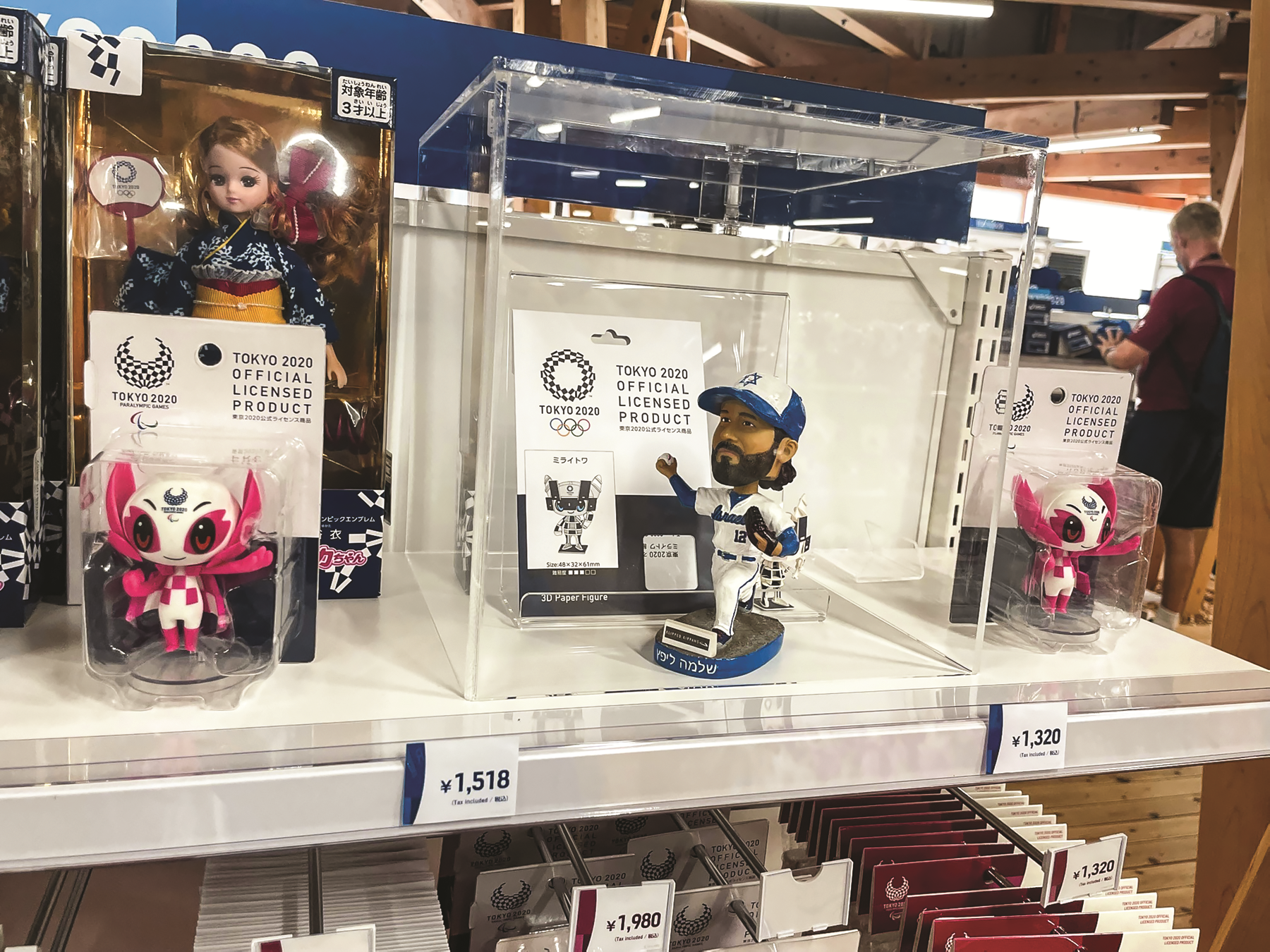Features
Shlomo Lipetz On City Winery’s Comeback, Pitching At The Olympics

Courtesy Shlomo Lipetz – Sidewinder & Show Maker:
Shlomo Lipetz on the mound playing for the Israeli National Baseball Team, which is currently competing in the Tokyo Olympics.
Shlomo Lipetz may have the most up-to-date take on both sports and music world as it continues to come back from the pandemic. This because in his dual role as VP of Programming for City Winery and relief pitcher for the Israeli National Baseball Team currently playing in the Tokyo Olympics, he has front-row seats to the evolving best practices and protocols the live industry employs as it continues to strategically plan for its full return.
Here, from the dining hall at the Olympic Village no less, the 42-year-old Lipetz explains his experience in Tokyo, how City Winery, with its 14 venues, is iterating its comeback, and why, as a sidearm pitcher who relies on his sinker, he declines to use the sticky stuff on his baseballs.
Pollstar: Where are you right now?
Shlomo Lipetz: I’m in a massive dining hall, we just got back from practice a half-hour ago. It’s two floors and supposed to be feeding close to 16,000 people between the 12,000 athletes and the 4,000 coaches and admin people that are here.
It’s like a festival.
Pretty much, a festival with only the fittest of the fit. You have NBA players, you have folks like (tennis player Novak) Djokovic all mingling with each other all at the peak of their physical careers.
No carbs or sugar?
There’s plenty of pizza, carbs, ice cream for those who choose. There’s people here that need to be consuming massive amounts of calories since they’re burning a lot.
Is this your first Olympics?
Yes, first and probably the last.
What happened in Brazil?
Baseball is one of those sports that goes in and out of the Olympics. It’s not going to be in the next Olympics in Paris, but it is going to be in L.A. in seven years and it is going to be in Australia in 2032. We only really started to make a run in 2013 and with the World Baseball Classic in 2017 we ended up finishing sixth in the world.
How were the opening ceremonies without a crowd?
I won’t lie, it was pretty weird walking into the stadium for the opening ceremony. I’ve always watched the opening ceremonies on TV and the marching of all the delegations, I think there are over 200 countries this year. We’re used to seeing the massive crowds in the stands. On TV it probably wasn’t as weird as it was walking in. You walked in and there’s a squad of volunteers and people doing the show and then empty stands. There are maybe 150 people in the stands, all media, it was pretty anticlimactic. Nevertheless, I definitely had tears of excitement just being on the other side of this massive event and actually walking through it. I mean it’s really a once-in-a-lifetime experience.
Did you see the 1,800 drones that formed the Earth above the stadium?
I did not. I heard about it. All the delegations are in the tunnel waiting for their turn to march. We didn’t really see any of the ceremony except for the end of it.

Courtesy Shlomo Lipetz – Mensches:
Michael Dorf (right) founder and CEO of City Winery, who first hired Lipetz as an intern for his record label Oyhoo.
What’s your gig at City Winery?
I’m based in New York and VP of programming, so I oversee all the music programing for all the City Wineries. We have local folks who work in each city. I’ve been working for Michael Dorf since pre-opening. I interned for him when he had a small Jewish label that came after he sold the Knitting Factory. I’ve overseen it from one city to nine and 14 venues. Some of our markets like New York, Boston, DC, Philadelphia and Nashville have two venues.
What’s your take on the Olympics operations from the vantage point of somebody who’s working 14 venues and probably keeping a lot of balls in the air at the same time, literally with baseball, but also your job?
I’m sure all the difficulties and all questions that were up in the air for the Olympics were stuff we dealt with in the past six months as we were opening all the City Wineries. The big difference is that when we opened up, we were requiring vaccines only and here they have not required athletes to get vaccinated.
No requirements?
They have not. But, as far as the testing, we had to do PCR testing 92 hours, 72 hours and 48 hours before we arrived. And then we’ve been doing spit PCR testing every single day starting in the morning. I saw in the newspaper that as athletes were starting to arrive in Tokyo, quite a few were starting to get it. It’s the same uncertainty we have in music. Will it break out again? Will they cancel it? Will they require vaccine? Will they not? What we’re seeing all over the United States with the Delta variant, who knows what’s going to happen? We had a couple of players test positive a few weeks ago and they were vaccinated.
How did they do?
Luckily, they had a couple of negative tests and recovered quickly. It seems like when you’re vaccinated, you don’t get as physically sick. Nevertheless, they’re still getting it. And then of course, the experience when you’re watching a show, now at City Winery or other places, is not exactly the same. I’m hearing stories in the Olympic Village of different teams mingling and partying and socializing and there’s very little of it. As I’m walking to sit down in the dining room, there are partitions between chairs and tables. Everyone’s having to wear a mask pretty much all the time. You walk in or out of the Village and temperature checks are a part of the operations.
I was at Central Park Summerstage last night seeing The Sun Ra Arkestra and few seemed masked but then most are vaccinated. With so many people unvaccinated in Japan, it seems like government there, in baseball terms, whiffed.
That and the fact that you have this kind of melting pot of people from all over the world. The way the competition goes here, you’re allowed to enter the Olympic Village only five days prior to your competition. If you lose at any point or get eliminated, you have 48 hours to leave the Village so you have an influx of people coming in and out. Their biggest fear is people getting the virus and then going back to Tokyo where pretty much it’s been in complete isolation throughout the whole pandemic, and they chose the route of doing very low vaccination and just completely closing the borders. In New York, it’s a little different because such a higher percentage of New Yorkers are vaccinated and people, for the most part, are not going all over the world.
I spoke to Michael Dorf early on in the vaccinations process and he wanted to make sure everybody who came to City Wineries was vaccinated or had proof of vaccination. Is it still like that?
It’s still like that in New York, and we’re still trying to do that city by city. There’s been a couple of challenges: One, obviously, like the rest of the industry, it’s been very challenging finding staff to come back to work for various reasons whether it be unemployment or people reconsidering their careers or the money that they’re getting paid. Things are changing so fast around us. As of this coming Monday, we are now mandating everyone to be vaccinated who enters City Winery and that includes, shows, restaurants, private events and our staff. This will apply to all of our markets. We feel this is the safest and fastest path to get out of the pandemic once and for all.

Courtesy Shlomo Lipetz – The Chosen People:
The Israeli National Baseball Team with Lipetz, No. 12, back row.
So when did you start playing baseball? Did you play pro?
I started playing baseball at the age of 10 in Israel and then I followed my dream to the United States and played for UC San Diego.
You’re a pitcher, right? How did you do?
Good. I did my three years in the military, so by the time I graduated, I was a little older than most of the kids, so it was a little harder to get signed. I did a short season in Mexican League, and then I went back in 2007 when Israel had one year of pro baseball. I’ve been playing semi-pro ever since and play in some competitive adult leagues in New York. But really, the highest level of competition was once a year when I went and played for the National Team. I’ve been playing with the Israeli National Team since I was 10 years old, so this is my 32nd year. I’m the first generation of Israeli baseball players.
What’s your best pitch?
I’m a side-armer, so I’d say slider.
Who was your pitching idol?
I didn’t really grow up in baseball culture because there was no baseball in Israel. I didn’t collect baseball cards. I would say the New York Mets were my team, so once a year when I’d visit the United States, it was mainly folks like Darryl Strawberry or David Cone. And then in the ‘90s the Atlanta Braves with Glavine and Smoltz.
How did you pivot to music?
In my mid-20s after graduating from UC San Diego, I figured I’m not making millions of dollars playing baseball, that’s probably not my path to make a living. I took some classes at a JC in San Diego in music business. I’ve always been into music, going to live shows, collecting records and then MP3s. When I moved to New York in late 2007, I said, “What the hell, what better way to get into the music business by interning? The music business loves free labor.” I got my foot through the door and worked really hard. I had no idea that it was going to develop into City Winery. I was just really dedicated. I came in five days a week and worked on stuff that was really not interesting, like sending out CDs for Michael Dorf’s label I interned for.
What was it called?
Oyhoo Records.

Courtesy Shlomo Lipetz – The Shlomo BobbleHead:
Merch mady by the Israeli Baseball Association to help raise money for the baseball team and fund its trip to Tokyo.
When is your first game and who are you up against?
There’s only six teams. There are two brackets, our first game is against Korea on the 29th and the United States on the 30th. And the other bracket has Spain, Dominican Republic, and Japan. Korea won the gold medal in the last Olympics, but Japan is ranked first in the world. We actually beat Korea 2-1 in Korea in a World Classic in 2017, so we know we can beat them. Japan is ranked first in the world, the United States is second, Korea is third, Dominican Republic is like fifth. Mexico is sixth, and we’re ranked 28th, so we’re considered a really big underdog. But baseball, I would say, unlike most team sports, there’s a better chance of upsets than the Dream Team in basketball losing.
Actually, the U.S. basketball team recently lost a game.
They’re playing their first game today right now. The way we see it, we have a 50% chance of winning a medal.
Are you a starting pitcher?
I’m considered the old-timer. I’m 42 years old and everyone else is in their mid 20s and early 30s, so my days as the best starter are over. These days, I’ve been coming in relief. Especially in baseball how it’s played now, it’s really about matchups, so I’ll be ready to go in whenever I’m called to.
Are you going to have any sticky stuff in your glove or anything to scuff up the ball?
No, these days, unfortunately, no more sticky stuff [laughter]. Just pure baseball. I’m a sinker pitcher anyway, so those who use sticky stuff is mainly for those who have a high spin rate, I want the ball to sink.